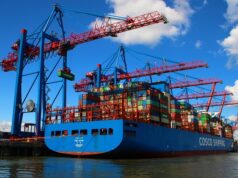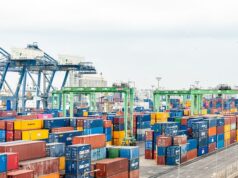The draft order that provides guidelines for the establishment, operation, supervision, and control of customs facilities and warehouses (CFWs) in the Philippines has been released by the Department of Finance and Bureau of Customs (BOC) and is up for public review.
The proposed customs administrative order (CAO) implements several provisions on CFWs as stipulated under Republic Act No. 10863, otherwise known as the Customs Modernization and Tariff Act or CMTA.
Position papers on the draft order will be accepted on April 6, and a public consultation held on the same day.
“When the business of the port and trade requires such facilities, the District Collector, subject to the approval of the Commissioner, shall designate and establish customs facilities and warehouses for the storage of imported goods or for other special purposes,” the draft CAO states.
The operation of customs bonded warehouses will be covered by a separate CAO.
All CFWs, including their expansion, extensions, and additional facilities are to be considered as part of customs premises. Thus, they are placed under the supervision and control of the district collector, who will impose the conditions that are deemed necessary to protect government revenue and the goods stored in them.
Types of CFWs are container yard, container freight station (CFS), seaport and airport temporary storage warehouse, inland container depot, and other premises used for customs purposes.
Established off-dock and off-terminal CFWs will also be considered as extension of the port subject to the supervision and control of the district collector.
Under the draft rules, the district collector will assign customs personnel to monitor and implement control measures for customs purposes. BOC, however, is not liable for any lost or damaged goods stored in any customs warehouse.
Existing contracts of private operators with concerned government agencies and regulatory bodies, such as the Philippine Ports Authority (PPA), Subic Bay Metropolitan Authority, Phividec Industrial Authority, Cebu Ports Authority, and their affiliates and subsidiaries “shall not be impaired or adversely affected in the exercise of the supervisory functions of the District Collector and the implementation of the CMTA of the Bureau.”
BOC will be responsible for issuing an authority to operate to CFWs, including imposing requirements for their establishment, maintenance, and operation, as well as setting forth the rights and obligations of operators, and the penalties and sanctions for violating these rules.
Operators of terminal facilities with existing contracts with PPA and other port authorities will be “authorized to operate as CFW, provided they comply with the additional requirements and conditions as may be imposed by the Bureau for the effective exercise of jurisdictional control over ports, airports and terminal facilities.”
“Only authorized CFW operators shall be allowed to handle and store imported goods that are immediately discharged from arriving aircrafts, vessels or other means of operational transport,” the draft order adds.
Terminal facility operators, in addition to meeting the requirements, must also provide unhampered access to customs officers of their premises; areas for physical examination and non-intrusive inspection, as well as other special areas needed; and suitable working space for BOC personnel.
They are also mandated to install closed-circuit television cameras, and post a surety bond of P100 million to cover for duties and taxes in case of loss or damage to goods stored in or transferred to the facilities.
According to the draft, the customs commissioner will, without prejudice to all the rights, conditions, and obligations already acquired or vested prior to the effectivity of the CAO, be ordering the re-evaluation, reclassification, and reorganization of all existing CFWs to ensure they comply with the requirements and conditions of the customs order.
“This notwithstanding, customs warehouses already existing and given authority to operate by the Bureau prior to the effectivity of this CAO are required to comply with all the administrative and reportorial requirements set forth in this CAO on or before December 30, 2018,” it adds. – Roumina Pablo
Image courtesy of photoraidz at FreeDigitalPhotos.net









